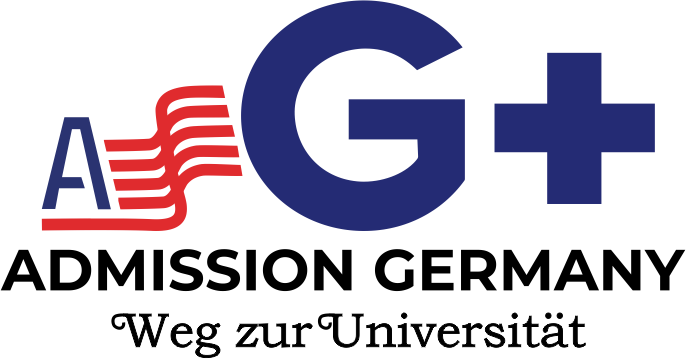Germany is one of the top destinations for medical graduates who wish to specialize and build a strong professional career in Europe. The German healthcare system is advanced, research-driven, and open to international doctors — especially those who are ready to meet the high academic and linguistic standards.
For non-EU students, applying for a medical residency (Facharztausbildung) in Germany involves several documentation and verification steps. This guide explains, in detail, which documents you need, why they’re important, and how to prepare them efficiently.
1. Overview and Context
Before applying, it’s essential to understand what a medical residency in Germany actually means and why documentation is such an important part of the process.
Key Points:
- Medical residency (Facharztausbildung) is a structured, supervised specialty training that follows your medical qualification.
- Non-EU students face more verification steps because their degrees are not automatically recognized in Germany.
- The licensing process is governed by the Approbationsbehörde (State Medical Licensing Authority).
- You’ll need to prove your medical qualification, language proficiency, and equivalence of education with German standards.
- Missing or incomplete documents can delay your application for months.
In short, the entire process revolves around documentation and verification — so gathering everything properly is crucial before applying.

2. Core Documents Required
This section lists every major document that a non-EU medical graduate must submit when applying for a medical residency in Germany.
2.1 Medical Degree Certificate & Transcript
- Degree Certificate (MBBS/MD or equivalent) – Must be an original or certified copy.
- Transcript of Records – Should clearly show courses, grades, and practical rotations.
- Internship / Practical Year Certificate – German authorities verify that your clinical experience meets their requirements.
- Equivalence Requirement – Since your degree is from outside the EU/EFTA, it must undergo a recognition process to check its equivalence to a German medical qualification.
Tip: Request sealed, official transcripts from your university early. Get them translated into German by a certified translator.
2.2 Proof of Degree Recognition / Equivalence
- Recognition Decision (Gleichwertigkeitsbescheid): This is the official confirmation that your degree matches German standards.
- If full equivalence is not confirmed, you’ll be asked to take the Kenntnisprüfung (Knowledge Examination).
- Recognition is granted by the Approbationsbehörde of the German federal state (Bundesland) you’re applying to.
- Each state has slightly different criteria — always check the state-specific requirements before applying.
Tip: Start your recognition process early; it can take 6–12 months.
2.3 Language Proficiency Certificates
- German Language Proficiency – Minimum B2 level (some states require C1).
- Medical German Exam (Fachsprachenprüfung – FSP) – Tests your medical vocabulary and patient communication skills.
- General German Exam (Telc / Goethe / ÖSD) – Required before applying for the FSP.
Tip:
- Aim for C1 level to increase your chances of getting approved quickly.
- Enroll in a medical German course focusing on real-world hospital scenarios.
2.4 Licensing/Medical Practice Permit Documents
- Passport or National ID – Valid proof of identity.
- Home Country Medical License – Proof that you are legally allowed to practise medicine in your home country.
- Application Form for Approbation or Berufserlaubnis – This is the formal request to obtain your German medical licence.
- Letter of Intent / Job Offer – Many states ask for a hospital’s written intent to hire you before issuing a permit.
Tip: Always sign your documents and attach a recent passport-sized photo as per the authority’s format.
2.5 Health / Liability / Character Certificates
- Police Clearance Certificate – To prove you have no criminal record.
- Health Certificate – Proof of physical fitness to practise medicine.
- Immunisation Record – Especially measles vaccination proof is mandatory.
- Curriculum Vitae (Lebenslauf) – Detailed CV in German, mentioning all academic and professional experience.
Tip: Keep these documents updated and notarized within the last 6 months before submission.
2.6 Certified Translations & Legalisation
- Official Translations – All non-German documents must be translated by a sworn translator (“vereidigter Übersetzer”).
- Legalisation / Apostille – Confirms authenticity of your documents in your home country.
- Double Check Requirements – Each state has its own rules for what needs legalisation.
Tip:
- Don’t use uncertified translations.
- Keep both original and translated copies safely organized.
2.7 Proof of German Residency/Visa & Financial Means (if applicable)
- Visa / Residence Permit – Required if you’re coming from outside the EU.
- Financial Proof – Show that you can support yourself during the recognition and transition period.
- Accommodation Proof – Some embassies may ask for a rental contract or invitation letter.
Tip: Apply for a Visa under §16d – Recognition of Foreign Qualifications if you plan to stay in Germany while your documents are under review.
2.8 Job Offer / Employment Contract (Often Required)
- Job Offer or Training Position – Must be from a licensed hospital or medical center in Germany.
- Letter of Intent – Even if you don’t have a full contract, a hospital’s written interest in hiring you helps.
- Hospital Accreditation – Ensure the hospital is authorized to provide residency training.
Tip: Start applying to hospitals parallel to your recognition process. Many institutions support international doctors with documentation.
3. Why Each Document Matters (and How to Prepare)
3.1 Degree & Transcript
- Purpose: Proves your medical qualification and allows German authorities to assess equivalence.
- Preparation Tip: Request sealed, stamped copies from your university and get certified German translations.
3.2 Recognition / Equivalence Decision
- Purpose: Confirms your degree meets German medical education standards.
- Preparation Tip: Use the Anabin Database to check your university’s standing before applying.
3.3 Language Certificates & FSP
- Purpose: Demonstrates your ability to communicate safely and effectively in German medical settings.
- Preparation Tip:
- Take the B2 exam first (Goethe/Telc/ÖSD).
- Enroll in a C1 medical German course and prepare for Fachsprachenprüfung (FSP).
3.4 Licensing Application & Job Offer
- Purpose: The Approbation or Berufserlaubnis gives you the legal right to practise.
- Preparation Tip: Apply only after you have your language certificates and at least a job offer letter.
3.5 Health / Character / Legal Documents
- Purpose: Ensures you meet German ethical and medical standards.
- Preparation Tip: Obtain police clearance from every country you’ve lived in during the last five years.
3.6 Translation & Legalisation
- Purpose: Confirms that your documents are genuine and understandable to German officials.
- Preparation Tip:
- Use certified translators only.
- Confirm whether you need an apostille or consular attestation.
3.7 Visa / Residency / Financial Proof
- Purpose: Proves that you’re legally allowed to stay in Germany during your recognition or residency training.
- Preparation Tip:
- Maintain at least €11,000 in a blocked account (for visa).
- Keep your employment contract or job offer handy for visa renewal.
4. Step-by-Step Document Timeline & Checklist
Pre-Arrival (in Home Country)
- Verify degree recognition and collect all original documents.
- Translate and legalise every academic certificate.
- Prepare B2 or C1 level German language certificates.
- Obtain police and medical fitness certificates.
- Start searching for hospitals that accept international doctors.
- Keep copies of every document (digital and paper).
After Arrival / Before Applying for Licence
- Secure a job offer or intent letter.
- Pass the Fachsprachenprüfung (FSP).
- Submit your Approbation or Berufserlaubnis application to the state authority.
- Attach all certified and translated documents.
After Submission
- Wait for document verification and equivalence decision.
- If required, prepare for the Kenntnisprüfung (Knowledge Exam).
- Once approved, start your Facharztausbildung (medical residency).
5. Common Pitfalls & How to Avoid Them
- Uncertified Translations or Missing Legalisation
- Always use sworn translators.
- Verify if the authority requires an apostille.
- Insufficient Language Proficiency
- B1 or conversational German isn’t enough; FSP requires deep understanding.
- Assuming Automatic Recognition
- Degrees from outside EU/EFTA are not automatically accepted.
- No Job Offer
- Some states won’t issue a licence unless you have a contract or offer letter.
- Outdated Certificates
- Police or health certificates older than 6 months may be rejected.
- Ignoring State Differences
- Each Bundesland (state) has unique document requirements — always check their official portal.
6. Tailoring Your Application for Non-EU Students
- Start Early: Document assessment can take 8–12 months.
- Choose the Right State: Processing time and rules differ by region (e.g., Bavaria vs. North Rhine-Westphalia).
- Budget Properly: Include translation, legalisation, visa, exam, and course fees.
- Network with Other Doctors: Join online communities and Facebook/LinkedIn groups for international doctors in Germany.
- Polish Your CV and Cover Letter: Write them in German, highlighting your experience and motivation.
- Be Patient: Bureaucracy can be slow but thorough; stay consistent with follow-ups.

7. Summary of Required Documents Checklist (For Quick Reference)
| Category | Documents Required |
|---|---|
| Education | Medical degree certificate, transcript, internship/practical year certificate |
| Recognition | Equivalence decision from Approbationsbehörde |
| Language | B2/C1 certificate, Fachsprachenprüfung (FSP) |
| Identity | Passport or ID card |
| Professional | Home country licence / registration |
| Legal & Health | Police clearance, health certificate, immunisation proof |
| Employment | Job offer / letter of intent from German hospital |
| Financial | Proof of funds or blocked account |
| Translations | Certified German translations and legalisations |
| Supporting | CV (German format), signed application forms, passport photos |
8. Conclusion
Applying for a medical residency in Germany as a non-EU student is a demanding but achievable process. Each document you prepare — from your degree certificate to your language exam — serves as proof of your capability, professionalism, and commitment to practising in Germany.
Key Takeaways:
- Gather and verify all academic, legal, and health documents before applying.
- Focus on achieving at least C1-level German proficiency and passing the FSP exam.
- Understand that recognition and Approbation are state-specific — research thoroughly.
- Stay patient, organised, and proactive.
With proper planning, authentic documentation, and language readiness, you can successfully begin your medical residency in Germany and build a rewarding career in one of the world’s best healthcare systems.

